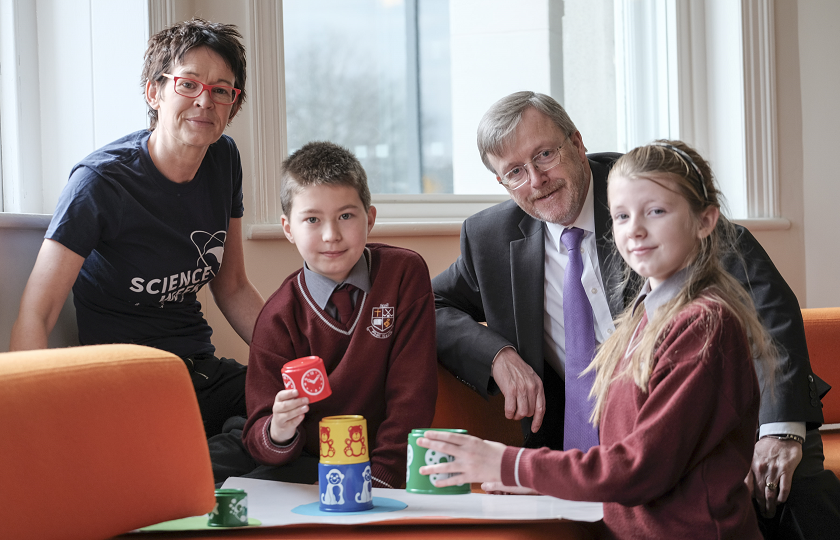
As part of National Science Week (November 12-19) Mary Immaculate College officially launched a new department entitled the Department of STEM (Science, Technology, Education and Mathematics) Education.
This new departure comes at an exciting time in the Irish educational landscape and responds to the National Strategy for Education (2011) which challenges third level providers to set out the distinctiveness of their respective institutions. The STEM Education Department will contribute towards producing STEM literate citizens – a goal that is driven not only by economic imperatives but also from a social justice perspective.
According to Dr Aisling Leavy, Head of STEM Education Department, this department will bring together a wealth of expertise and innovative practice from Science Education, Mathematics Education and ICT/Digital learning. “Mary Immaculate College is invested in building upon, promoting and widening relationships with the wider community to bring all learners, particularly those from diverse and marginalized communities, into contact with STEM” she said.
To that end over 5000 primary school children with their teachers and families attended free STEM related activities, organised by the Department of STEM Education, and hosted in both MIC’s Limerick and Thurles campuses. The events, which were all part of Science Week, included the Fantastic Physics Show, interactive experiments on forces, energy electric and magnesium; the Ugly Animal Show, a performance celebrating the incredible biology of the animal kingdom’s most unsightly species; brainteasers workshops deliver by MIC pre-service teachers; building bridges workshops; innovative workshops for teachers on using technology to support physical education and talks on the science behind health nutrition.
According to Professor Eugene Wall, President (Acting) of MIC, Mary Immaculate College has an established track record in encouraging children’s long term interest, understanding, knowledge and skills in STEM subjects - and developing primary school teachers’ confidence, knowledge and skills in the teaching of STEM. “Science education is crucial in fostering wonderment in children and in helping them to develop scientific reasoning. To that end, MIC’s STEM Education team maintains a very strong up-to-date knowledge of contemporary developments in their fields by co-ordinating, managing and conducting evidence-based research – and in developing new innovative, effective teaching and learning methodologies”.
Continuing he said MIC is the largest primary teacher education college in the country, educating more primary school teachers than any other institution in the country and holds significant specialist expertise in Primary STEM Education. “It is our shared goal to continue to prepare a STEM literate teaching profession who will foster relevant STEM skills and dispositions in schools. STEM visibility in the undergraduate programme is further enhanced by the recent development and commencement of the MA in STEM which provides a space for practicing teachers to acknowledge and develop existing STEM expertise in the educational community” he said.
The two-year, part-time programme, offers a focus on integrative and innovative approaches to STEM education through exploring socially responsive teaching and research informed by national and international developments in school and education settings. The programme is intended for teachers and educators who want to develop their skills as they critique, investigate, and disseminate new approaches to STEM education and become STEM leaders in their workplaces. Application and programme details available here.




